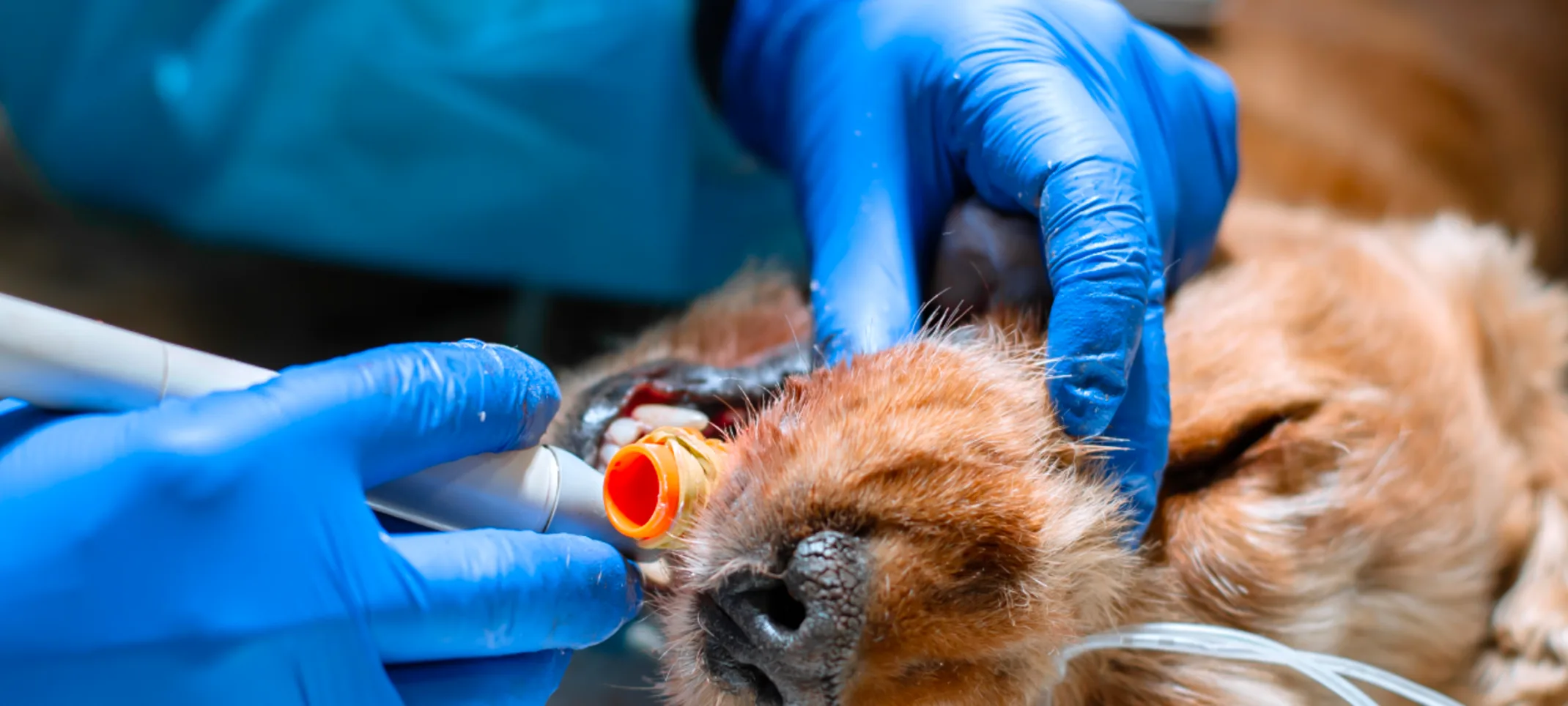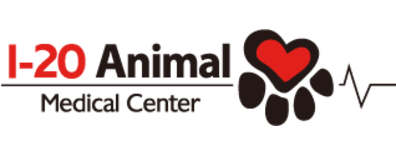I-20 Animal Medical Center
Dental Crowns

Why would a dog or cat need a crown?
For many pets, crowns are the only way to save a damaged or diseased tooth and maintain the pet’s ability to eat and function. Some categories of pets that often need crowns are show dogs, police dogs, guard dogs and agility dogs. These pets use their canines and other teeth in the day-to-day performance of their jobs, and a missing tooth would prevent the dog from carrying out its job.
But even dogs and cats that are family pets can and do need crowns on occasion. If the broken tooth is a canine, then a crown is often indicated. Canines form the corners of the dentition and stabilize the entire bite. Missing canines lower the dog or cat’s ability to grasp and rip meat, defend themselves and maintain proper occlusion.
Crowns protect the pet’s teeth from further breakage and damage. If the tooth has had a root canal, a crown is almost mandatory in many cases. Between the broken tooth that presented itself at the exam and the access opening drilled to get inside the tooth to do a root canal, the tooth can be severely compromised. The crown makes the tooth stronger.
How do veterinary dentists place crowns on a dog or cat?
Placing a crown on a dog or a cat is about the same procedure as it is in a human. First, if the tooth is broken and needs a root canal, we do that. Then we build the broken part back up, if needed, with a resin like epoxy. That tooth is then reshaped to make sure that a metal jacket (crown) will fit all the way over the pet’s tooth. An impression is made and a bite recording is done and sent to a human dental lab for the construction of the crown. Once we get the crown back at I-20 Animal Medical Center, we then cement it into place for the final restoration.
A crown might seem like a drastic procedure to perform on a pet, but it is vital for working dogs to keep these very important teeth. A police dog without its canines, for example, is at a distinct disadvantage, as biting and holding is needed.
Schedule pet dental care at I-20 Animal Medical Center by calling 817.478.9238.
